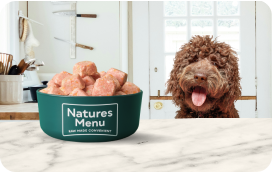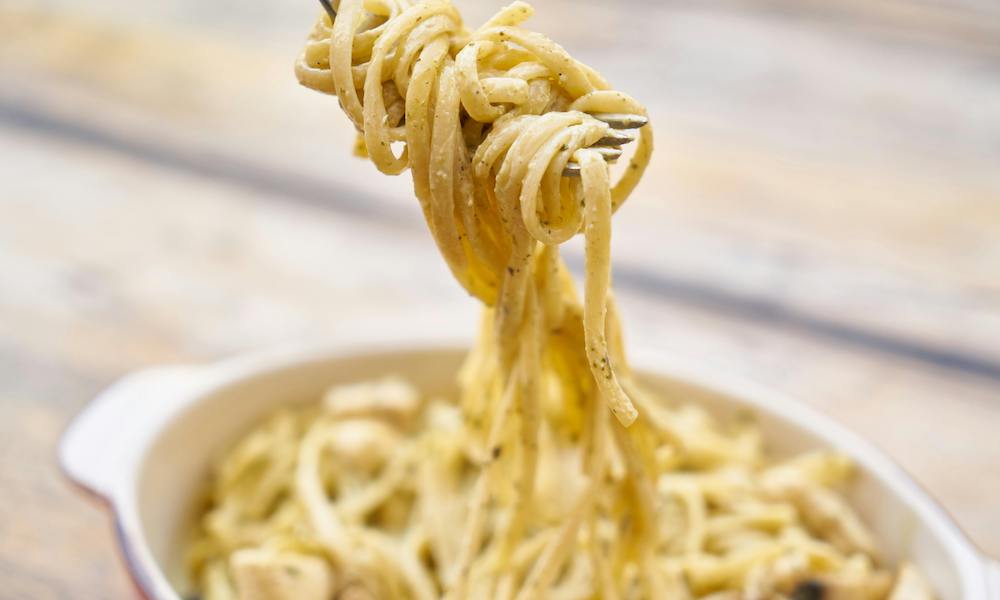-
Dog Food
- For dogs
-
Raw Dog Food
Nutrient-rich and expertly made with 100% natural ingredients
-
Wet Dog Food
Easy-to-store cans and pouches with high meat content
-
Freeze Dried Dog Food
Convenient food full of nutrients and flavour
-
Dry Dog Food
Supercharged crunchy kibble with raw freeze dried meaty bites
-
Bundles
Shop our hand-picked collections of Natures Menu dog food
-
Christmas
Choose from our Christmas favourites and make this holiday season special
Subscribe and Save!Save 10% off every order when you subscribe

Switch your dog to a real food Personal Nutrition Plan
Learn more - Cat Food
- Nutrition Plan
- Why Us
Why Natures Menu
Over 40 years' expertise in raw feeding
Our ingredients
Carefully selected for diverse nutrition
Customer testimonials
What other pet parents say
How it works
Our hassle-free home delivery service
Explore our dog range
A wide range of nutrient-rich food for dogs
Explore our cat range
Shop high-quality food that cats love

- Raw Feeding
Raw Advice
Discover expert tips on raw feeding
Benefits of raw feeding
How a raw diet can benefit your dog from nose to tail
Transitioning your dog
Advice from our experts on switching to raw
Transitioning your cat
Tips to make your cat love their new food
Raw feeding videos
Our veterinary nurse guides you through raw feeding
Blog
Expert-led guides on dog nutrition and lifestyle

-
Dog Food
-
All Dog Food Products
- For dogs
-
Raw Dog Food
Nutrient-rich and expertly made with 100% natural ingredients
-
Wet Dog Food
Easy-to-store cans and pouches with high meat content
-
Freeze Dried Dog Food
Convenient food full of nutrients and flavour
-
Dry Dog Food
Supercharged crunchy kibble with raw freeze dried meaty bites
-
Bundles
Shop our hand-picked collections of Natures Menu dog food
-
Christmas
Choose from our Christmas favourites and make this holiday season special
- Treats
-
Dry Dog Treats
Meaty chunks and superfood bars to reward good behaviour
-
Raw Dog Treats
All-natural raw chunks and bones, frozen for freshness
- For puppies
-
Puppy Food
Expertly crafted with all the nutrients your growing pup needs
- More
-
Explore Our Ranges
Find the best option to suit you and your pet
-
Subscribe & Save 10%
Save 10% of every order when you subscribe!
- For dogs
-
Raw Dog Food
Nutrient-rich and expertly made with 100% natural ingredients
-
Wet Dog Food
Easy-to-store cans and pouches with high meat content
-
Freeze Dried Dog Food
Convenient food full of nutrients and flavour
-
Dry Dog Food
Supercharged crunchy kibble with raw freeze dried meaty bites
-
Bundles
Shop our hand-picked collections of Natures Menu dog food
-
Christmas
Choose from our Christmas favourites and make this holiday season special
- Cat Food
- Nutrition Plan
Why Natures Menu
Over 40 years' expertise in raw feeding
Our ingredients
Carefully selected for diverse nutrition
Customer testimonials
What other pet parents say
How it works
Our hassle-free home delivery service
Explore our dog range
A wide range of nutrient-rich food for dogs
Explore our cat range
Shop high-quality food that cats love
Raw Advice
Discover expert tips on raw feeding
Benefits of raw feeding
How a raw diet can benefit your dog from nose to tail
Transitioning your dog
Advice from our experts on switching to raw
Transitioning your cat
Tips to make your cat love their new food
Raw feeding videos
Our veterinary nurse guides you through raw feeding
Blog
Expert-led guides on dog nutrition and lifestyle

Switch your dog to a real food Personal Nutrition Plan
Learn moreSave 10% off every order when you subscribe

Switch your dog to a real food Personal Nutrition Plan
Learn moreSave 10% off every order when you subscribe

Switch your dog to a real food Personal Nutrition Plan
Learn moreSave 10% off every order when you subscribe


